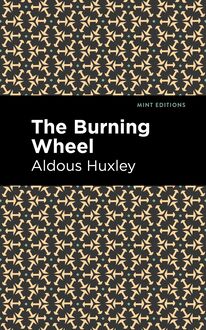-
 Univers
Univers
-
 Ebooks
Ebooks
-
 Livres audio
Livres audio
-
 Presse
Presse
-
 Podcasts
Podcasts
-
 BD
BD
-
 Documents
Documents
-
- Cours
- Révisions
- Ressources pédagogiques
- Sciences de l’éducation
- Manuels scolaires
- Langues
- Travaux de classe
- Annales de BEP
- Etudes supérieures
- Maternelle et primaire
- Fiches de lecture
- Orientation scolaire
- Méthodologie
- Corrigés de devoir
- Annales d’examens et concours
- Annales du bac
- Annales du brevet
- Rapports de stage
La lecture à portée de main
Vous pourrez modifier la taille du texte de cet ouvrage
Découvre YouScribe en t'inscrivant gratuitement
Je m'inscrisDécouvre YouScribe en t'inscrivant gratuitement
Je m'inscrisEn savoir plus
Vous pourrez modifier la taille du texte de cet ouvrage
En savoir plus

Description
Tales and Stories (1891) is a collection of short fiction by Mary Shelley. Despite her reputation as one of the foremost English novelists of the nineteenth century, Shelley also wrote numerous stories for magazines and other publications, earning a reputation as a gifted storyteller in all forms of fiction.
In “The Sisters of Albano,” a traveler resting on the banks of an Italian lake strikes up a conversation with a beautiful Countess. Inspired by the history and landscape of the region, the Countess tells the tragic story of a local family. During the French occupation of Italy under Napoleon’s rule, Anina and Maria live vastly different lives. Maria, the older sister, is a nun at the convent of Santa Chiara in Rome, while Anina, the younger, is in love with a mysterious outlaw named Domenico. When the French arrive in Albano, Anina goes searching for Domenico, who has gone into hiding with other members of the local resistance. After the young girl is arrested and sentenced to die for violating an officer’s orders, Maria, dressed in her religious habit, appeals to the French on her sister’s behalf. In “Ferdinando Eboli,” a Neapolitan Count bids farewell to his young fiancée before going off to fight for his king. When he returns, he finds that an impostor has taken over his estate—and married the unsuspecting Adalinda.
With a beautifully designed cover and professionally typeset manuscript, this edition of Mary Shelley’s Tales and Stories is a classic of English literature reimagined for modern readers.
Sujets
Informations
| Publié par | Mint Editions |
| Date de parution | 09 février 2021 |
| Nombre de lectures | 1 |
| EAN13 | 9781513276458 |
| Langue | English |
Informations légales : prix de location à la page 0,0500€. Cette information est donnée uniquement à titre indicatif conformément à la législation en vigueur.
Extrait
Tales and Stories
Mary Wollstonecraft Shelley
Tales and Stories was first published in 1891.
This edition published by Mint Editions 2020.
ISBN 9781513271453 | E-ISBN 9781513276458
Published by Mint Editions®
minteditionbooks.com
Publishing Director: Jennifer Newens
Design & Production: Rachel Lopez Metzger
Project Manager: Micaela Clark
Typesetting: Westchester Publishing Services
C ONTENTS I. T HE S ISTERS OF A LBANO II. F ERDINANDO E BOLI III. T HE E VIL E YE IV. T HE D REAM V. T HE M OURNER VI. T HE F ALSE R HYME VII. A T ALE OF THE P ASSIONS ; OR , T HE D EATH OF D ESPINA VIII. T HE M ORTAL I MMORTAL IX. T RANSFORMATION X. T HE S WISS P EASANT XI. T HE I NVISIBLE G IRL XII. T HE B ROTHER AND S ISTER XIII. T HE P ARVENUE XIV. T HE P OLE XV. E UPHRASIA XVI. T HE E LDER S ON XVII. T HE P ILGRIMS
I
T HE S ISTERS OF A LBANO
“And near Albano’s scarce divided waves
Shine from a sister valley;—and afar
The Tiber winds, and the broad ocean laves
The Latian coast where sprang the Epic war,
‘Arms and the Man,’ whose re-ascending star
Rose o’er an empire; but beneath thy right
Tully reposed from Rome; and where yon bar
Of girdling mountains intercepts the sight
The Sabine farm was till’d, the weary bard’s delight.”
It was to see this beautiful lake that I made my last excursion before quitting Rome. The spring had nearly grown into summer, the trees were all in full but fresh green foliage, the vine-dresser was singing, perched among them, training his vines: the cicada had not yet begun her song, the heats therefore had not commenced; but at evening the fire-flies gleamed among the hills, and the cooing aziola assured us of what in that country needs no assurance—fine weather for the morrow. We set out early in the morning to avoid the heats, breakfasted at Albano, and till ten o’clock passed our time in visiting the Mosaic, the villa of Cicero, and other curiosities of the place. We reposed during the middle of the day in a tent elevated for us at the hill-top, whence we looked on the hill-embosomed lake, and the distant eminence crowned by a town with its church. Other villages and cottages were scattered among the foldings of mountains, and beyond we saw the deep blue sea of the southern poets, which received the swift and immortal Tiber, rocking it to repose among its devouring waves. The Coliseum falls and the Pantheon decays,—the very hills of Rome are perishing,—but the Tiber lives for ever, flows for ever, and for ever feeds the land-encircled Mediterranean with fresh waters.
Our summer and pleasure-seeking party consisted of many: to me the most interesting person was the Countess Atanasia D _____ , who was as beautiful as an imagination of Raphael, and good as the ideal of a poet. Two of her children accompanied her, with animated looks and gentle manners, quiet, yet enjoying. I sat near her, watching the changing shadows of the landscape before us. As the sun descended, it poured a tide of light into the valley of the lake, deluging the deep bank formed by the mountain with liquid gold. The domes and turrets of the far town flashed and gleamed, the trees were dyed in splendour; two or three slight clouds, which had drunk the radiance till it became their essence, floated golden islets in the lustrous empyrean. The waters, reflecting the brilliancy of the sky and the fire-tinted banks, beamed a second heaven, a second irradiated earth, at our feet. The Mediterranean, gazing on the sun,—as the eyes of a mortal bride fail and are dimmed when reflecting her lover’s glance,—was lost, mixed in his light, till it had become one with him.—Long (our souls, like the sea, the hills, and lake, drinking in the supreme loveliness) we gazed, till the too full cup overflowed, and we turned away with a sigh.
At our feet there was a knoll of ground, that formed the foreground of our picture; two trees lay basking against the sky, glittering with the golden light, which like dew seemed to hang amid their branches; a rock closed the prospect on the other side, twined round by creepers, and redolent with blooming myrtle; a brook, crossed by huge stones, gushed through the turf, and on the fragments of rock that lay about, sat two or three persons, peasants, who attracted our attention. One was a hunter, as his gun, lying on a bank not far off, demonstrated, yet he was a tiller of the soil; his rough straw hat, and his picturesque but coarse dress, belonged to that class. The other was some contadina, in the costume of her country, returning, her basket on her arm, from the village to her cottage home. They were regarding the stores of a pedlar, who with doffed hat stood near: some of these consisted of pictures and prints—views of the country, and portraits of the Madonna. Our peasants regarded these with pleased attention.
“One might easily make out a story for that pair,” I said: “his gun is a help to the imagination, and we may fancy him a bandit with his contadina love, the terror of all the neighbourhood, except of her, the most defenceless being in it.”
“You speak lightly of such a combination,” said the lovely countess at my side, “as if it must not in its nature be the cause of dreadful tragedies. The mingling of love with crime is a dread conjunction, and lawless pursuits are never followed without bringing on the criminal, and all allied to him, ineffable misery. I speak with emotion, for your observation reminds me of an unfortunate girl, now one of the Sisters of Charity in the convent of Santa Chiara at Rome, whose unhappy passion for a man, such as you mention, spread destruction and sorrow widely around her.”
I entreated my lovely friend to relate the history of the nun. For a long time she resisted my entreaties, as not willing to depress the spirit of a party of pleasure by a tale of sorrow. But I urged her, and she yielded. Her sweet Italian phraseology now rings in my ears, and her beautiful countenance is before me. As she spoke, the sun set, and the moon bent her silver horn in the ebbing tide of glory he had left. The lake changed from purple to silver, and the trees, before so splendid, now in dark masses, just reflected from their tops the mild moonlight. The fire-flies flashed among the rocks; the bats circled round us: meanwhile thus commenced the Countess Atanasia:—
The nun of whom I speak had a sister older than herself; I can remember them when as children they brought eggs and fruit to my father’s villa. Maria and Anina were constantly together. With their large straw hats to shield them from the scorching sun, they were at work in their father’s podere all day, and in the evening, when Maria, who was the elder by four years, went to the fountain for water, Anina ran at her side. Their cot—the folding of the hill conceals it—is at the lake-side opposite; and about a quarter of a mile up the hill is the rustic fountain of which I speak. Maria was serious, gentle, and considerate; Anina was a laughing, merry little creature, with the face of a cherub. When Maria was fifteen, their mother fell ill, and was nursed at the convent of Santa Chiara at Rome. Maria attended her, never leaving her bedside day or night. The nuns thought her an angel, she deemed them saints: her mother died, and they persuaded her to make one of them; her father could not but acquiesce in her holy intention, and she became one of the Sisters of Charity, the nun-nurses of Santa Chiara. Once or twice a year she visited her home, gave sage and kind advice to Anina, and sometimes wept to part from her; but her piety and her active employments for the sick reconciled her to her fate. Anina was more sorry to lose her sister’s society. The other girls of the village did not please her: she was a good child, and worked hard for her father, and her sweetest recompense was the report he made of her to Maria, and the fond praises and caresses the latter bestowed on her when they met.
It was not until she was fifteen that Anina showed any diminution of affection for her sister. Yet I cannot call it diminution, for she loved her perhaps more than ever, though her holy calling and sage lectures prevented her from reposing confidence, and made her tremble lest the nun, devoted to heaven and good works, should read in her eyes, and disapprove of the earthly passion that occupied her. Perhaps a part of her reluctance arose from the reports that were current against her lover’s character, and certainly from the disapprobation and even hatred of him that her father frequently expressed. Ill-fated Anina! I know not if in the north your peasants love as ours; but the passion of Anina was entwined with the roots of her being, it was herself: she could die, but not cease to love. The dislike of her father for Domenico made their intercourse clandestine. He was always at the fountain to fill her pitcher, and lift it on her head. He attended the same mass; and when her father went to Albano, Velletri, or Rome, he seemed to learn by instinct the exact moment of his departure, and joined her in the podere , labouring with her and for her, till the old man was seen descending the mountain-path on his return. He said he worked for a contadino near Nemi. Anina sometimes wondered that he could spare so much time for her; but his excuses were plausible, and the result too delightful not to blind the innocent girl to its obvious cause.
Poor Domenico! the reports spread against him were too well founded: his sole excuse was that his father had been a robber before him, and he had spent his early years among these lawless men. He had better things in his nature, and yearned for the peace of the guiltless. Yet he could hardly be called guilty, for no dread crime stained him. Nevertheless, he was an outlaw and a bandit; and now that he loved Anina, these names were the stings of an adder to pierce his soul. He would have fled from his comrades to a far country, but Anina dwelt amid their very haunt
-
 Univers
Univers
-
 Ebooks
Ebooks
-
 Livres audio
Livres audio
-
 Presse
Presse
-
 Podcasts
Podcasts
-
 BD
BD
-
 Documents
Documents
-
Jeunesse
-
Littérature
-
Ressources professionnelles
-
Santé et bien-être
-
Savoirs
-
Education
-
Loisirs et hobbies
-
Art, musique et cinéma
-
Actualité et débat de société
-
Jeunesse
-
Littérature
-
Ressources professionnelles
-
Santé et bien-être
-
Savoirs
-
Education
-
Loisirs et hobbies
-
Art, musique et cinéma
-
Actualité et débat de société
-
Actualités
-
Lifestyle
-
Presse jeunesse
-
Presse professionnelle
-
Pratique
-
Presse sportive
-
Presse internationale
-
Culture & Médias
-
Action et Aventures
-
Science-fiction et Fantasy
-
Société
-
Jeunesse
-
Littérature
-
Ressources professionnelles
-
Santé et bien-être
-
Savoirs
-
Education
-
Loisirs et hobbies
-
Art, musique et cinéma
-
Actualité et débat de société
- Cours
- Révisions
- Ressources pédagogiques
- Sciences de l’éducation
- Manuels scolaires
- Langues
- Travaux de classe
- Annales de BEP
- Etudes supérieures
- Maternelle et primaire
- Fiches de lecture
- Orientation scolaire
- Méthodologie
- Corrigés de devoir
- Annales d’examens et concours
- Annales du bac
- Annales du brevet
- Rapports de stage



















